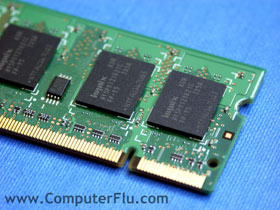

Speed Up A Slow Computer
Want your computer / laptop speeding up ?Reasons why a computer can be slow

I've many years experience making computers run quicker by various methods. From stopping unnecessary programs and services from starting when you first turn your computer on to pruning out old software / apps. This can both speed up your computers total start time, and can free up memory for other programs. I then see if the computer would go faster by installing more memory chips (RAM). This gives the computer more 'thinking space' so that it does not have to use something called 'virtual memory'. Using virtual memory really slows your computer down. The current most cost effective way to speed up a computer / laptop is to install a Solid State Drive (SSD), this generally makes slow computers at least 4 times quicker. Windows XP needs a certain amount of memory (1GB is plenty), and each newer version up to Windows 10, generally needs more memory (RAM). Windows 10 with less than 4GB is never a great experience. Windows 11 sits nice with 8GB or more. Keep your computer running in tip top conditionA relatively simple things you can do on your computer:
Defrag can speed up your hard drive by re-arranging the data in a more orderly way. Modern SSD drives do not need defragging. Old software removalRemoval of old software can also speed up your computer, and make more disk space available for your own use. Don't let a slow computer get you down.Could your computer / laptop benefit from a 'Spring Clean' ? ... |
| Home
| Services
| Rates
| Contact
| PC Tips
| Site Map
|

|
|
|